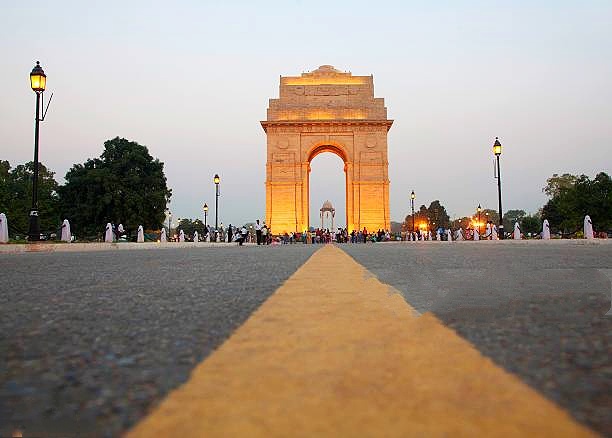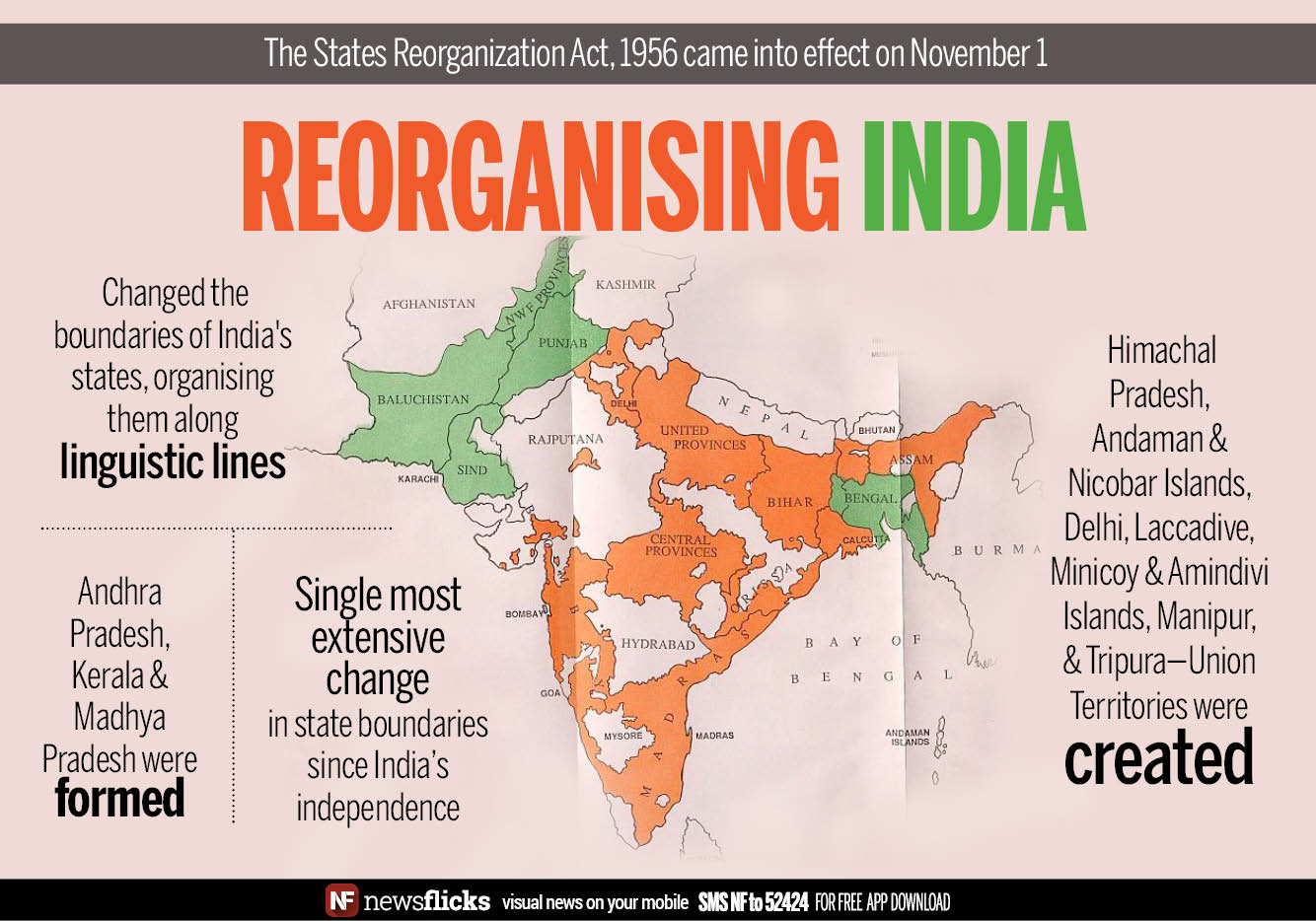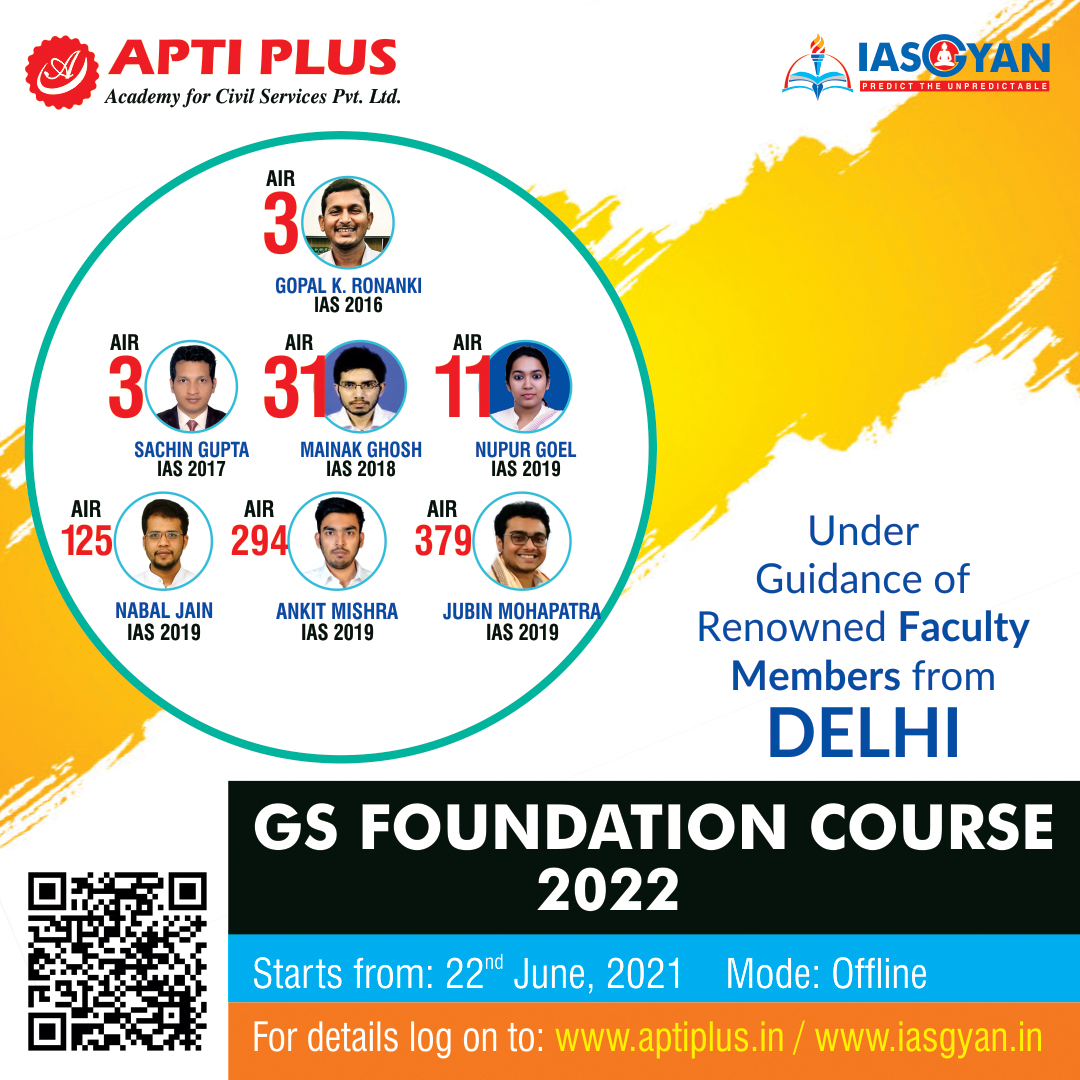




Recently, the Central Government notified the Government of National Capital Territory of Delhi (Amendment) Act 2021. It is an amendment of the Government of National Capital Territory of Delhi Act, 1991. The 2021 Amendment Act gives primacy to the Lieutenant Governor (L-G) over the elected government of Delhi.
The law gives sweeping powers to the Lieutenant Governor of Delhi by declaring him to be the "Government of Delhi".
It also provides that the opinion of the LG "shall be obtained" on all such matters as may be specified by the LG, before taking any executive action on decisions of the Council of Ministers of the Delhi Government.
Before Independence, Delhi was a part of the province of Punjab.
It was annexed to it under the Government of India Act, 1858.
In 1911, Delhi became the capital of India, and the Delhi tehsil was separated from Punjab, and became a Chief Commissioner’s Province.
The first specific law to govern Delhi came into the picture in 1912, where the Delhi Laws Act, 1912 came into force.
As per the Act the Chief Commissioner was empowered to determine application of laws by issuing appropriate notification in the Gazette of India. In practice, largely the laws applicable to Punjab were also made applicable to Delhi.
With the Government of India Act, 1919, and Government of India Act, 1935, Delhi was retained as a centrally administered territory.
Just before the country gained independence, the Pattabhi Sitaramiyya Committee gave its report about the required changes in the administrative set up of Chief Commissioners’ Province in the Constitution.
Pattabhi Sitaramiyya Committee’s Recommendations
With respect to Delhi, it was suggested that Delhi would not be fragmented into Old and New Delhi, but kept intact with Central Government enjoying certain special powers.
The High Court for Delhi was recommended to exercise both original, and appellate jurisdiction.
For the governance arrangement, Delhi, along with Coorg, and Ajmer-Merwara, was suggested to function under a Lieutenant Governor, to be appointed by the President.
But along with this, there will be an administration by a Council of Ministers, who would be responsible to the Legislature.
The legislature would be elected like other provincial legislatures, but with some exceptions.
In 1950, when the Constitution of India came into force, all the provinces of Chief Commissioners became Part C states.
The Delhi Laws Act, 1950 was brought into force to continue the enforcement of applicable erstwhile laws in the Chief Commissioner’s Province in Part C states as well.
With the enactment of the Government of Part C States Act, 1951, the Legislative Assemblies in these states was empowered to make laws on all matters except, public order, police, constitution and powers of municipal corporations and local authorities, lands and buildings situated in Delhi.
In 1952, the Legislative Assembly of Delhi came into existence. The structure of this assembly was directly elected unicameral legislature with reservation of seats for scheduled castes.
In the background, the country was also undergoing state reorganization. With the passing of the State Reorganisation Act, 1956, the Indian states were limited to being “States and Union Territories”, eliminating the previous system of Part A, B, C, and D States.


While States were governed by a Council of Ministers appointed through elected representatives from the Legislative Assemblies; Delhi, like other Union Territories, had an “Administrator” appointed by the President.
Between 1961 and 1962, by way of the 10th, 12th , and 14th Constitutional Amendment, the list of Union Territories was extended to Dadra and Nagar Haveli, Goa, Damn and Diu, and Pondicherry.
At this juncture, although with the enactment of the Government of Union Territories Act, 1963, UTs were provided Legislative Assemblies and Council of Ministers, this Act was not applicable on Delhi.
For Delhi, keeping its governance in mind, a special act, the Delhi Administration Act, 1966 was enacted. It provided Delhi with limited representative government through metropolitan Council, comprising of 56 elected members and five nominated members.
To reconsider the structure allocated to Delhi, In 1975, a task force was set up in the form of the Prabhu Committee, which looked into the question of improving administration in Delhi.
It made a few key recommendations such as the
However, no changes to the Delhi Administration Act, 1966 was made.
Balakrishnan Committee was in favor of granting Delhi statehood.
Findings: With the population influx in the capital city an effective representative democratic system needs to be implemented to safeguard the rights of a large population.
The absence of a fully empowered Legislative Assembly, entrenches an unaccountable form of government for the citizens residing in the capital city.
It was also brought to notice that the current set up, with overlapping roles of multiple authorities such as the Metropolitan Council, the Municipal Corporation of Delhi, the New Delhi Municipal Committee, the administrative functioning of Delhi was suffering.
Criticisms: There were criticisms against the Committee that Granting Delhi statehood may rest on the conflict between Central and State Governments and it would be detrimental to the functioning of the national capital territory.
Final Recommendation: Delhi was neither included in the Union Territories Act, nor the status of UTs under the Constitution was given to it. The Committee recommended for giving the national capital a special status. It said Delhi should have a legislative assembly, a council of ministers with appropriate powers, responsible to this Assembly. This Legislative Assembly was given powers to make laws for the whole or any part of the then national capital on matters under the State list, with the exception on matters with respect to land, police, and public order.
With the 69th Constitutional Amendment Act, 1991, the recommendations of the Balakrishnan Committee were given effect, and Article 239AA and Article 239AB were inserted in the Constitution.
With this, Delhi was constitutionally given the title of “National Capital Territory of Delhi” that would be administered by a Lieutenant Governor (LG) who was to be appointed by the President.
A Legislative Assembly was to be constituted. A council of Ministers to aid and advise the Lt. Governor were also to be present, and only in certain cases in relation to subjects of land, police, and public order, the Lt. Governor was to not bound by the aid and advise of the Council of Ministers.
Article 239AA(4) provided a mechanism for referring the matter to the President in case of a difference of opinion between the Lt. Governor and the Council of Ministers.
The Act amends the GNCT of Delhi Act, 1991, and re-defines Delhi Government as the Lieutenant Governor (LG).
It curbs the Delhi Assembly's power to conduct its proceedings as per the rules of procedure made by it.
It provides that the Rules made by the Delhi Legislative Assembly to regulate the procedure and conduct of business in the Assembly must be consistent with the Rules of Procedure and Conduct of Business in the Lok Sabha.
As mentioned earlier the Act gives sweeping powers to the Lieutenant Governor of Delhi by declaring him to be the "Government of Delhi".
It also provides that the opinion of the LG "shall be obtained" on all such matters as may be specified by the LG, before taking any executive action on decisions of the Council of Ministers of the Delhi Government.
The Act also prohibits the Legislative Assembly from making any rule to enable itself or its Committees to:
Further, the Bill provides that the opinion of the LG must be obtained before taking any executive action on decisions of Delhi Government, on such matters as may be specified by the LG.

The Central government stated that there was no structural mechanism for effective time-bound implementation of Section 44 of the 1991 Act. Additionally, there is no clarity on what matters are required to be submitted to the LG before implementation.
|
Section 44(1) in The Government Of National Capital Territory Of Delhi Act, 1991. (b) for the more convenient transaction of business with the Ministers, including the procedure to be adopted in the case of a difference of opinion between the Lieutenant Governor and the Council of Ministers or a Minister. |
The government also mentioned in the ‘objects and reasons’ that the amendment was brought to give effect to the interpretation made in the Government of NCT of Delhi v/s Union of India case by the Supreme Court. Supreme Court in its judgment said that the LG needs to be informed of all the decisions that are made by the Council of Ministers.
Further, the Government said that the amendment to the 1991 Act was in line with General Clauses Act, 1897. This Act states that the head of the Central Government is the President and that of the State Government is the Governor. Since Delhi is a union territory, its head shall be the LG by the same analogy. As far as restrictions on the powers of the Delhi Legislative Assembly are concerned, the same are only being standardized by bringing them in line with the Lok Sabha rules as part of "good governance".
The provision in the 2021 Act that requires the Government to “mandatorily seek the Lieutenant Governor's opinion on the matters so specified by him” is against the observations made by the Supreme Court in GNCT of Delhi v. Union of India & Anr.
The Supreme Court had held that the LG cannot interfere in each and every decision of the Delhi Government, and that the LG is bound by the aid and advice of the Council of Ministers of the Delhi Government, except in matters of land, police and public order.
The Constitution Bench ruled that "LG is an administrative head in the limited sense, and is not a Governor. He is bound by the aid and advise of NCT Government in areas other than those exempted.”
The Top Court had also observed that the elected representatives and the Council of Ministers of Delhi, being accountable to the voters of Delhi, must have the appropriate powers so as to perform their functions effectively and efficiently.
The Constitution bench added that the real purpose behind the Constitution (Sixty-ninth Amendment) Act, 1991, which inserted Section 239AA (Special provisions with respect to Delhi) and paved way for setting up an elected Government in the Union Territory was "to establish a democratic setup and representative form of government wherein the majority has a right to embody their opinion in laws and policies pertaining to the NCT of Delhi subject to the limitations imposed by the Constitution."
The LG is not a part of the assembly and is not responsible to the assembly. If the LG is the government and not the elected government, he is not bound to act in accordance with the decisions of the assembly. It will be a negation of Article 239AA.
Further, Article 239AB provides for president’s rule in Delhi when the administration of the territory cannot be carried on in accordance with the provisions of Article 239AA. President’s rule is imposed on a report from the LG. If the LG is the government, will she or he have to make a report against themselves? Article 239AA recognises the well-established constitutional position that the elected government is the real government and the governor or LG is only a constitutional head. So this amendment is against Article 239AA.
The Amendment was widely criticized by the Delhi's ruling Aam Aadmi Party for demolishing the federal structure of the government by transferring the power of an elected government to the Lieutenant Governor.
© 2025 iasgyan. All right reserved